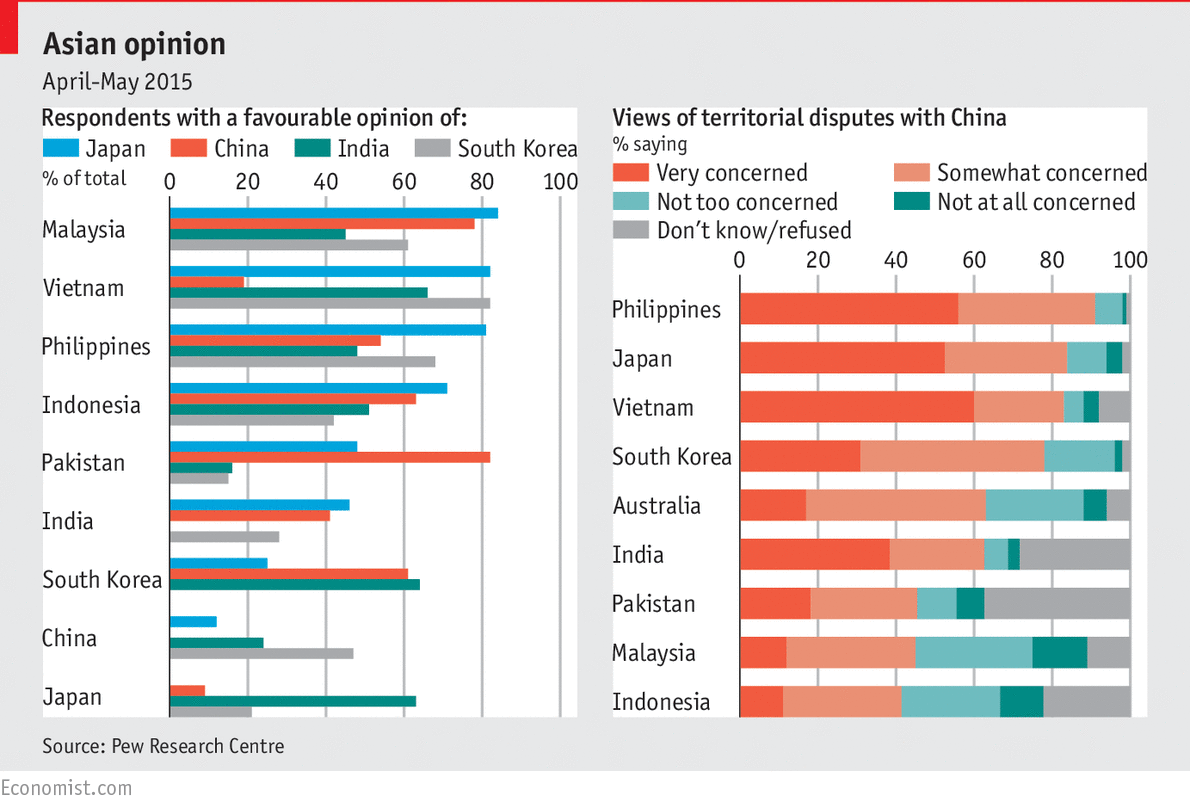
Daily chart
How Asians view each other
The Economist | 18 September 2015
AS WE
highlighted in our recent essay, old
resentments die hard in Asia. The latest report by the Pew Research Centre on
public perceptions in countries in the Asia-Pacific region bears this out.
Historic grudges continue to colour the views East Asians in particular (in
China, Japan and South Korea) hold about the other countries. Seventy years
after Japan’s second-world-war surrender and the end of its occupation of much
of China, very few Chinese see Japan in a favourable light. Correspondingly, as
China has been increasingly assertive in pursuing its territorial dispute with
Japan over the Senkaku or Diaoyu islands, the
number of Japanese with positive views of China has fallen to similar levels.
The end
of the second world war also marked the end of Japanese colonial rule in Korea.
Many South Koreans, like many Chinese still believe that Japan has not
apologised enough for its militaristic, colonial past. Today just 25% of South
Koreans view Japan favourably. Elsewhere, however, although many other parts of
Asia suffered Japanese aggression, much of the region holds a generally
positive image of Japan. In Malaysia for example, also occupied by Japan during
the war, 84% of those surveyed view Japan kindly. So too in South Asia, both
Indians and Pakistanis hold favourable views of Japan (and reserve their
deepest resentments for each other).
China
meanwhile remains very popular with its “all-weather friend” Pakistan. And
overall, a majority of those surveyed (57%) held favourable views of the
biggest power in the region. But some countries, particularly those bordering
the South China Sea, feel much more wary. They are alarmed by China’s frenzied construction activity in the sea, turning rocks
and reefs into artificial islands that could have military uses. When asked
about China’s overlapping territorial claims, the vast majority of people in
the Philippines and Vietnam—where the disputes are most active are “very or
somewhat concerned”. A majority of Indians, Japanese and South Koreans—all with
their own territorial disagreements with China—are also worried.


No comments:
Post a Comment